
Reviewing John Irving’s Avenue of Mysteries (2015) for an Irish newspaper a couple of years ago, I found myself wondering: why are the titles of novels by fictional novelists always so mysteriously unconvincing? The protagonist of Avenue of Mysteries is Juan Diego, a globetrotting writer of Irvingesque stature; his most famous book is called A Story Set in Motion by the Virgin Mary. Encountering this, I thought: No commercial publisher would ever append so clunky a title to a popular book. My suspension of disbelief was shaken. Why, I wondered, couldn’t Irving—the man responsible for titles as instantly memorable as The World According to Garp (1978) and The Hotel New Hampshire (1981)—come up with something better?


 It was a feeling I’d had before. Novels by fictional novelists (and there is, as we know, no shortage of fictional novelists) always seem to be saddled with ersatz, implausible titles—so much so that I find myself doubting whether such unhappily-titled books could ever actually exist. Frequently—to compound matters—we are supposed to accept that these books have been bestsellers, or that they have become cultural touchstones, despite their awful titles. Take the case of Nathan Zuckerman: in Philip Roth’s great trilogy (The Ghost Writer [1979], Zuckerman Unbound [1981], and The Anatomy Lesson [1983]), we are asked to believe that Zuckerman has published successful books entitled Mixed Emotions and Reversed Intentions. Reversed Intentions! What a terrible title!
It was a feeling I’d had before. Novels by fictional novelists (and there is, as we know, no shortage of fictional novelists) always seem to be saddled with ersatz, implausible titles—so much so that I find myself doubting whether such unhappily-titled books could ever actually exist. Frequently—to compound matters—we are supposed to accept that these books have been bestsellers, or that they have become cultural touchstones, despite their awful titles. Take the case of Nathan Zuckerman: in Philip Roth’s great trilogy (The Ghost Writer [1979], Zuckerman Unbound [1981], and The Anatomy Lesson [1983]), we are asked to believe that Zuckerman has published successful books entitled Mixed Emotions and Reversed Intentions. Reversed Intentions! What a terrible title!
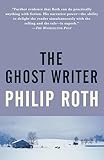
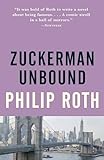
 You find similar clunkers popping up all over the literary map. In Martin Amis’s The Information (1995), the narcissistic litterateur Gwyn Barry has achieved bestsellerdom with a book unconvincingly entitled Amelior (and his rival, Richard Tull, has published novels with equally shaky titles: Aforethought and Dreams Don’t Mean Anything). In Graham Greene’s The End of the Affair (1951), the fictional novelist Maurice Bendrix is supposed to have published novels called The Ambitious Host, The Crowned Image, and The Grave on the Water-Front: all of which sound like the titles of Graham Greene novels that didn’t quite make it out of a notebook. In Claire Kilroy’s All Names Have Been Changed (2009), the legendary Irish writer P.J. Glynn has published a novel with the discouraging appellation of Apophthegm. In Stephen King’s The Dark Half (1989), the haunted writer Thad Beaumont is the author of The Sudden Dancers, a title so prissily literary that you can imagine finding it on the contents page of an anthology of work by earnest high-school students (but not, surely, on the cover of a book from a major publisher).
You find similar clunkers popping up all over the literary map. In Martin Amis’s The Information (1995), the narcissistic litterateur Gwyn Barry has achieved bestsellerdom with a book unconvincingly entitled Amelior (and his rival, Richard Tull, has published novels with equally shaky titles: Aforethought and Dreams Don’t Mean Anything). In Graham Greene’s The End of the Affair (1951), the fictional novelist Maurice Bendrix is supposed to have published novels called The Ambitious Host, The Crowned Image, and The Grave on the Water-Front: all of which sound like the titles of Graham Greene novels that didn’t quite make it out of a notebook. In Claire Kilroy’s All Names Have Been Changed (2009), the legendary Irish writer P.J. Glynn has published a novel with the discouraging appellation of Apophthegm. In Stephen King’s The Dark Half (1989), the haunted writer Thad Beaumont is the author of The Sudden Dancers, a title so prissily literary that you can imagine finding it on the contents page of an anthology of work by earnest high-school students (but not, surely, on the cover of a book from a major publisher).


 King, in fact, is a repeat offender: Ben Mears, in ‘Salem’s Lot (1975), is allegedly the author of a novel called Billy Said Keep Going; Mike Noonan, in Bag of Bones (1998), has given the world The Red-Shirt Man and Threatening Behaviour; and Bobbi Anderson, in The Tommyknockers (1987), has produced a Western entitled Rimfire Christmas, which is my personal nomination for worst fictional title of all time—although another close contender must surely be Daisy Perowne’s imaginary collection of poetry in Ian McEwan’s Saturday (2005), which is called (oh dear!) My Saucy Bark.
King, in fact, is a repeat offender: Ben Mears, in ‘Salem’s Lot (1975), is allegedly the author of a novel called Billy Said Keep Going; Mike Noonan, in Bag of Bones (1998), has given the world The Red-Shirt Man and Threatening Behaviour; and Bobbi Anderson, in The Tommyknockers (1987), has produced a Western entitled Rimfire Christmas, which is my personal nomination for worst fictional title of all time—although another close contender must surely be Daisy Perowne’s imaginary collection of poetry in Ian McEwan’s Saturday (2005), which is called (oh dear!) My Saucy Bark.


 Even the imaginary writers created by Vladimir Nabokov are not immune to the terrible-title virus. Sebastian Knight, the elusive protagonist of The Real Life of Sebastian Knight (1941), is responsible for books entitled The Prismatic Bezel and The Doubtful Asphodel (although Success, the title of another of Knight’s fictional books, is so good that Martin Amis stole it for one of his own actual books). The bibliography of Clare Quilty, in Lolita (1955), boasts, beside The Enchanted Hunters, an unappetizingly-titled play called The Strange Mushroom. And in Look at the Harlequins! (1974), the Nabokov-avatar narrator counts among his backlist Esmerelda and her Parandrus and Plenilune—titles that a real-life publisher would surely blue-pencil the instant the manuscripts landed on her desk.
Even the imaginary writers created by Vladimir Nabokov are not immune to the terrible-title virus. Sebastian Knight, the elusive protagonist of The Real Life of Sebastian Knight (1941), is responsible for books entitled The Prismatic Bezel and The Doubtful Asphodel (although Success, the title of another of Knight’s fictional books, is so good that Martin Amis stole it for one of his own actual books). The bibliography of Clare Quilty, in Lolita (1955), boasts, beside The Enchanted Hunters, an unappetizingly-titled play called The Strange Mushroom. And in Look at the Harlequins! (1974), the Nabokov-avatar narrator counts among his backlist Esmerelda and her Parandrus and Plenilune—titles that a real-life publisher would surely blue-pencil the instant the manuscripts landed on her desk.


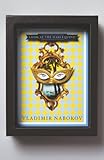 There are, of course, honourable exceptions: fictional writers whose fictional books are so convincingly titled that you can imagine chancing upon tattered mass-market paperback copies of them in the dusty corner of a used bookstore. Take Henry Bech, the self-tormented writer-protagonist of John Updike’s wonderful Bech stories. Bech’s first novel, a ’50s motorcycle epic, is called Travel Light. His second is called Brother Pig (“which is,” Bech tells a Bulgarian poet in “The Bulgarian Poetess,” “St. Bernard’s expression for the body”). And Bech’s blockbuster bestseller (Updike’s alliterative Bs are contagious) is called Think Big—a title so punchy it’s practically Presidential. In the Bech books, Updike, characteristically, pays scrupulous attention to recreating the textures of the real. The appendix to Bech: A Book (1970) supplies a complete bibliography of Bech’s published work, including such echt-realistic entries as “”Lay off, Norman,” New Republic, CXL.3 (19 January 1959), 22-3.”
There are, of course, honourable exceptions: fictional writers whose fictional books are so convincingly titled that you can imagine chancing upon tattered mass-market paperback copies of them in the dusty corner of a used bookstore. Take Henry Bech, the self-tormented writer-protagonist of John Updike’s wonderful Bech stories. Bech’s first novel, a ’50s motorcycle epic, is called Travel Light. His second is called Brother Pig (“which is,” Bech tells a Bulgarian poet in “The Bulgarian Poetess,” “St. Bernard’s expression for the body”). And Bech’s blockbuster bestseller (Updike’s alliterative Bs are contagious) is called Think Big—a title so punchy it’s practically Presidential. In the Bech books, Updike, characteristically, pays scrupulous attention to recreating the textures of the real. The appendix to Bech: A Book (1970) supplies a complete bibliography of Bech’s published work, including such echt-realistic entries as “”Lay off, Norman,” New Republic, CXL.3 (19 January 1959), 22-3.”


 In general, though, it seems as if the titles of imaginary novels will inevitably tend towards the offputtingly cheesy (Billy Said Keep Going), the ludicrously recherche (The Prismatic Bezel), or the embarrassingly portentous (like the novel embarked upon, and abandoned, by Anna Wulf in Doris Lessing’s The Golden Notebook [1962], which bears the dubious moniker The Shadow of the Third). It sometimes feels as if all of these novelists are writing stories set in the same alternate universe, the distinguishing feature of which is that all novels have terrible titles. What is it with this world of imaginary writers and publishers? Why can’t its inhabitants come up with better titles for their books?
In general, though, it seems as if the titles of imaginary novels will inevitably tend towards the offputtingly cheesy (Billy Said Keep Going), the ludicrously recherche (The Prismatic Bezel), or the embarrassingly portentous (like the novel embarked upon, and abandoned, by Anna Wulf in Doris Lessing’s The Golden Notebook [1962], which bears the dubious moniker The Shadow of the Third). It sometimes feels as if all of these novelists are writing stories set in the same alternate universe, the distinguishing feature of which is that all novels have terrible titles. What is it with this world of imaginary writers and publishers? Why can’t its inhabitants come up with better titles for their books?

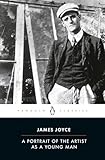
 Perhaps it’s simply the case that novelists greedily reserve their most inspired titles for their own actual, real-life books—which are, after all, far more important than any works ascribable to fictional characters within them. Why go for The Grave on the Water-Front when you can have The Heart of the Matter, or, indeed, The End of the Affair? Why call your book Dreams Don’t Mean Anything when you can muster a title as good as The Information? Why settle for The Shadow of the Third when you’ve got The Golden Notebook? A successful title—and all novelists know this instinctively—does much more than simply name the finished product. A successful title seduces. It creates a mood. It stakes a claim. A great title (Pride and Prejudice; A Portrait of the Artist as a Young Man; A Clockwork Orange) will seem to have been around forever. No novelist, I suspect, would happily waste a great title on a book by an imaginary writer—even if they’ve dreamed that writer up themselves, along with all the ghostly volumes on her nonexistent shelf.
Perhaps it’s simply the case that novelists greedily reserve their most inspired titles for their own actual, real-life books—which are, after all, far more important than any works ascribable to fictional characters within them. Why go for The Grave on the Water-Front when you can have The Heart of the Matter, or, indeed, The End of the Affair? Why call your book Dreams Don’t Mean Anything when you can muster a title as good as The Information? Why settle for The Shadow of the Third when you’ve got The Golden Notebook? A successful title—and all novelists know this instinctively—does much more than simply name the finished product. A successful title seduces. It creates a mood. It stakes a claim. A great title (Pride and Prejudice; A Portrait of the Artist as a Young Man; A Clockwork Orange) will seem to have been around forever. No novelist, I suspect, would happily waste a great title on a book by an imaginary writer—even if they’ve dreamed that writer up themselves, along with all the ghostly volumes on her nonexistent shelf.
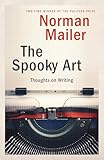 Or perhaps a certain ironic distancing is at work, when it comes to imaginary novels. In many cases, I think, we are given to understand that a fictional novelist may be perceptive, responsive, and strong-willed–but not quite as lavishly gifted as his or her creator. Clare Quilty, for instance, is hardly meant to be a genius on the Nabokovian scale (although he does collaborate with his creator’s anagrammatic alter ego, Vivian Darkbloom, on a play called The Lady Who Loved Lightning—and look at that! Another lamentable title!). Poor old Maurice Bendrix, in The End of the Affair, is certainly meant to be a second-rate novelist, and his dud titles confirm it (you can easily envision finding a copy of The Crowned Image, falling out of its old-fashioned binding, in a charity shop or hospital library: unreprinted, unread, invisible to posterity). And Thad Beaumont, in The Dark Half, doesn’t begin to tap the wellspring of his talent until he forsakes the bland lit-fic of The Sudden Dancers and gets his hands dirty writing the Stephen-King-like Machine’s Way (now that’s a title). There is also, of course, the limitation adduced by Norman Mailer, in his marvelous book on writing, The Spooky Art (2003): “Jean Malaquais [Mailer’s mentor] once remarked that you can write about any character but one. ‘Who is that?’ ‘A novelist more talented than yourself.'”
Or perhaps a certain ironic distancing is at work, when it comes to imaginary novels. In many cases, I think, we are given to understand that a fictional novelist may be perceptive, responsive, and strong-willed–but not quite as lavishly gifted as his or her creator. Clare Quilty, for instance, is hardly meant to be a genius on the Nabokovian scale (although he does collaborate with his creator’s anagrammatic alter ego, Vivian Darkbloom, on a play called The Lady Who Loved Lightning—and look at that! Another lamentable title!). Poor old Maurice Bendrix, in The End of the Affair, is certainly meant to be a second-rate novelist, and his dud titles confirm it (you can easily envision finding a copy of The Crowned Image, falling out of its old-fashioned binding, in a charity shop or hospital library: unreprinted, unread, invisible to posterity). And Thad Beaumont, in The Dark Half, doesn’t begin to tap the wellspring of his talent until he forsakes the bland lit-fic of The Sudden Dancers and gets his hands dirty writing the Stephen-King-like Machine’s Way (now that’s a title). There is also, of course, the limitation adduced by Norman Mailer, in his marvelous book on writing, The Spooky Art (2003): “Jean Malaquais [Mailer’s mentor] once remarked that you can write about any character but one. ‘Who is that?’ ‘A novelist more talented than yourself.'”


 But none of these theories really offers a satisfactory explanation for the badness of so many imaginary titles. Looking more closely at some of these spectral designations, I think we can often discern a profoundly literary reason for their terribleness. The titles of Nathan Zuckerman’s early novels—Mixed Emotions and Reversed Intentions—not only camouflage Philip Roth’s own early books (respectively, Letting Go [1962] and When She Was Good [1967]); they also summarize a recurring theme of the Zuckerman novels themselves. Writing out of mixed emotions, Zuckerman frequently reverses his intentions—although by the time he does, of course, it’s generally too late to undo the damage his fiction has caused. Similarly, in Look at the Harlequins!, each appalling title parodies an actually existing Nabokov novel: Plenilune (i.e. a full moon) conceals The Defense (1930), and Esmerelda and her Parandrus (a parandrus being, in medieval bestiaries, a shapeshifting beast with cloven hooves) surely encodes Lolita. (Perhaps the wittiest of these parody-titles is The Red Top-Hat, which mocks Invitation to a Beheading [1935]). These titles, in all their awfulness, alert us to fictional strategies. They invite us to examine more attentively the texts in which they appear.
But none of these theories really offers a satisfactory explanation for the badness of so many imaginary titles. Looking more closely at some of these spectral designations, I think we can often discern a profoundly literary reason for their terribleness. The titles of Nathan Zuckerman’s early novels—Mixed Emotions and Reversed Intentions—not only camouflage Philip Roth’s own early books (respectively, Letting Go [1962] and When She Was Good [1967]); they also summarize a recurring theme of the Zuckerman novels themselves. Writing out of mixed emotions, Zuckerman frequently reverses his intentions—although by the time he does, of course, it’s generally too late to undo the damage his fiction has caused. Similarly, in Look at the Harlequins!, each appalling title parodies an actually existing Nabokov novel: Plenilune (i.e. a full moon) conceals The Defense (1930), and Esmerelda and her Parandrus (a parandrus being, in medieval bestiaries, a shapeshifting beast with cloven hooves) surely encodes Lolita. (Perhaps the wittiest of these parody-titles is The Red Top-Hat, which mocks Invitation to a Beheading [1935]). These titles, in all their awfulness, alert us to fictional strategies. They invite us to examine more attentively the texts in which they appear.
Comparably, in The Golden Notebook, the title of Anna’s novel, The Shadow of the Third, points us towards one of Lessing’s central thematic concerns—the hidden ethical quandaries that bedevil any monogamous sexual relationship between a man and a woman. The titles of Richard Tull’s novels, in The Information, offer clues to his revenger’s nature, and to his eventual fate: Richard plots the destruction of Gwyn Barry with aforethought, and by the end of the novel, he has come to believe that dreams, in the sense of hopes, don’t mean anything. And the phrase “a story set in motion by the Virgin Mary” exactly describes the plot of Irving’s Avenue of Mysteries: in the form of Juan Diego’s imaginary title, this phrase lurks inside the primary text, as if to remind us, periodically, of precisely what sort of novel we are reading.
Titles of imaginary novels, then, aren’t called upon to perform the same tasks as titles of real novels. They aren’t intended to seduce, or to stake a claim. Nor are they designed, generally speaking, to be “realistic” (in the sense that Henry Bech’s book titles, in Updike’s stories, are designed to be realistic). Imaginary titles, more often than not, are items of fictional furniture, like characters or leitmotivs or symbols. They do double-duty: they name the works of a fictional writer, and they illuminate the narrative in which that fictional writer appears. For a novelist, the chance to create an imaginary title is another chance to be witty, or inventive, or amusing; more importantly, it’s another chance to enrich the texture of the work at hand.
Of course, that doesn’t mean we shouldn’t take a moment, every now and then, to be grateful that we don’t live in a world—the world of Thad Beaumont, the world of Nathan Zuckerman—in which everyone seems to think that The Sudden Dancers, or Reversed Intentions, is a perfectly acceptable title for a novel. Now—has anyone seen my copy of Rimfire Christmas?
Image Credit: Wikipedia.








